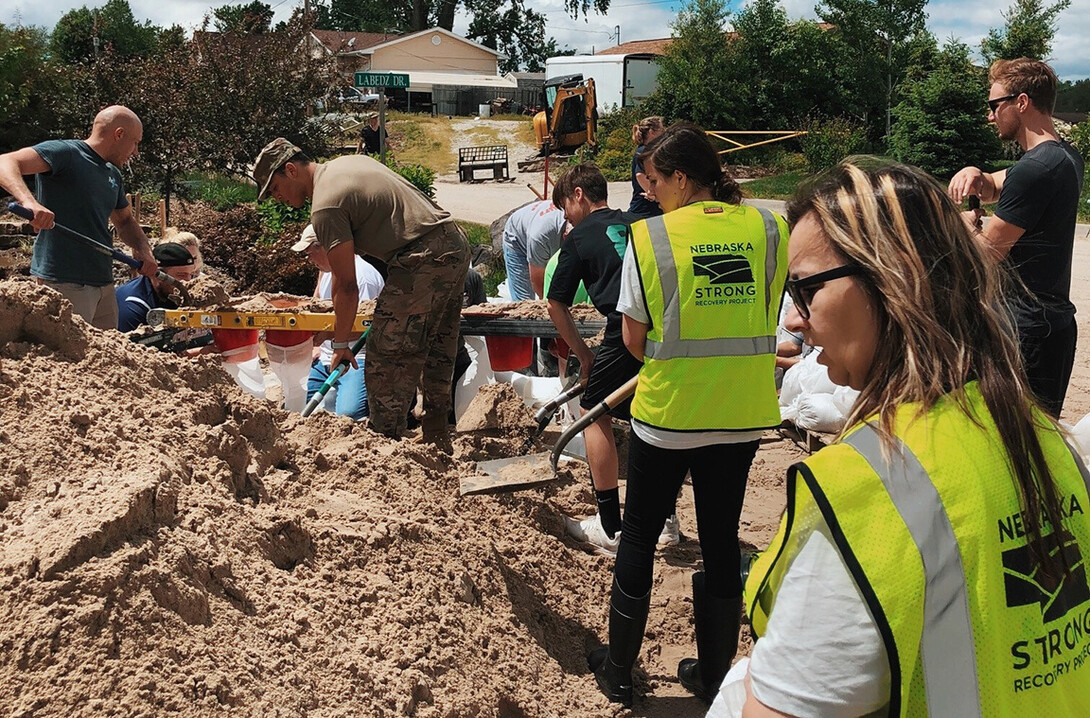
In the six months since a bomb cyclone caused unprecedented flooding in the state, the University of Nebraska’s Public Policy Center has been at the forefront of helping Nebraskans deal with the mental and emotional fallout from the disaster.
Disaster recovery experts from the Public Policy Center, in partnership with the Department of Health and Human Services and six state behavioral health regions, were successful in securing a first wave of grant funding in May to establish the Nebraska Strong Recovery Project. The initial funding supported the training of community outreach workers and development of informational materials and resources.
A new grant of $2.2 million from the Federal Emergency Management Agency, in partnership with the Substance Abuse and Mental Health Services Administration, has been awarded to continue this recovery assistance through May 2020.
“Nearly all of the money goes straight back into the communities by employing local people as trained outreach workers,” said Denise Bulling, a senior research director and licensed mental health practitioner at the Public Policy Center who is overseeing the program. “Our goal was to have funding to continue this work through the anniversary of the flood.”
More than 40 outreach workers received training and are now couched in 28 counties across the state, providing support free of charge to flood survivors.
“To date, crisis counselors have had 12,417 face-to-face meetings with Nebraskans, distributed 23,000 pieces of recovery materials and are continually sending outreach workers to communities,” Stacie Kotschwar, outreach specialist for the Public Policy Center, said.
Outreach workers also will be on hand at Husker Harvest Days, Sept. 10-12 in Grand Island, meeting with flood survivors and offering support.
Bulling said the role outreach workers play in recovery is increasingly important as survivors go through the phases of disaster, which swing from euphoria to disillusionment.
“The workers support individuals and communities as they experience these highs and lows of recovery,” Bulling said. “They’re helping to educate people about the common reactions to disaster and assisting them with identifying good ways to cope with the stress that naturally comes with recovery.”
The amount of area impacted by the March flooding, along with additional flooding that’s happened during the summer months has made this disaster recovery challenging, but Bulling and her team are well-versed in handling disaster responses.
“This disaster is a very large one in scope – a third to two-thirds of the state has been impacted,” Bulling said. “The only thing bigger I’ve worked on is Puerto Rico because that’s the entire island. It’s very widespread here and that makes outreach especially challenging because a lot of our impacted areas are extremely rural.”
The Nebraska Strong Recovery Project is free and anonymous to anyone in need of help. The Nebraska Rural Response Hotline — 1-800-464-0258 — is serving as a touchpoint for anyone who needs help. Recovery efforts and information can be found on the Nebraska Strong Recovery Project Facebook page.







